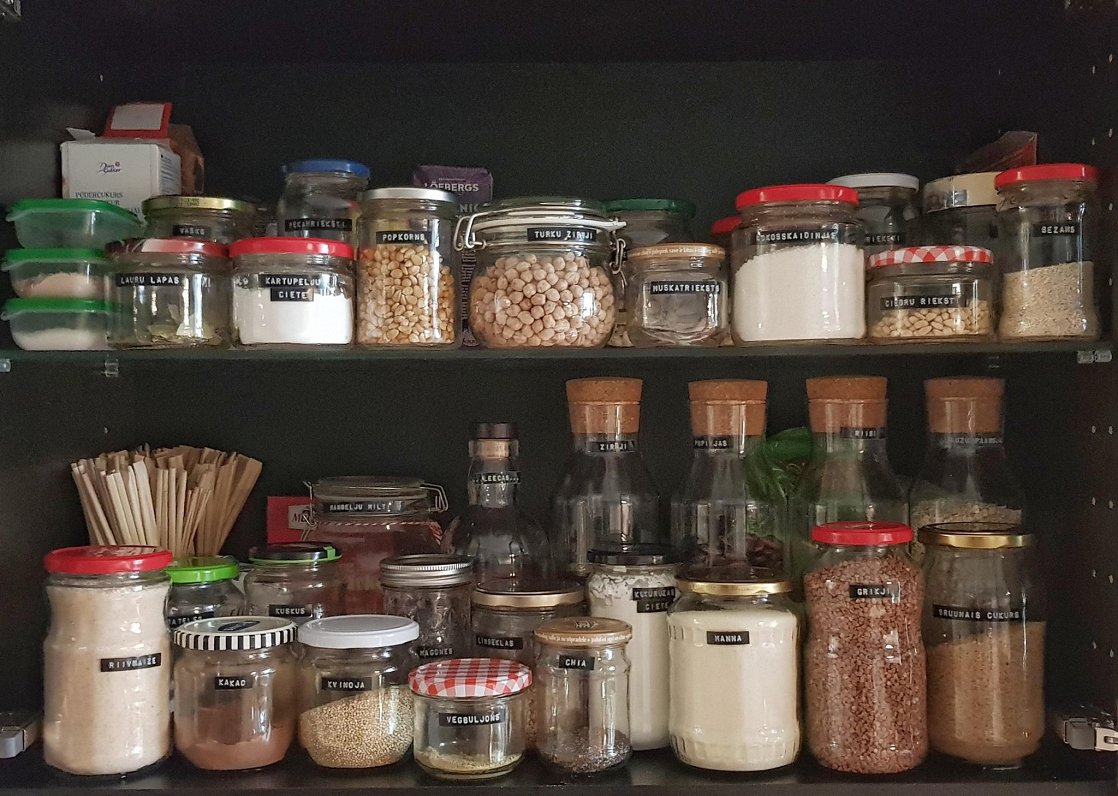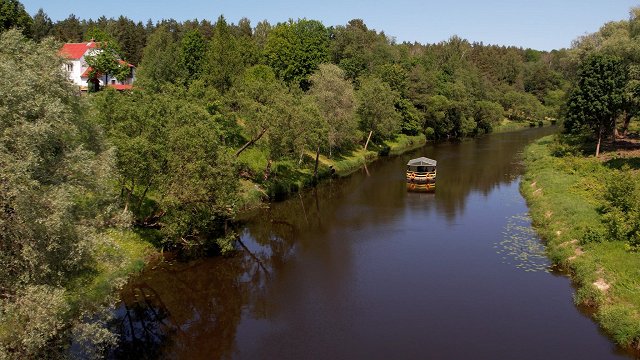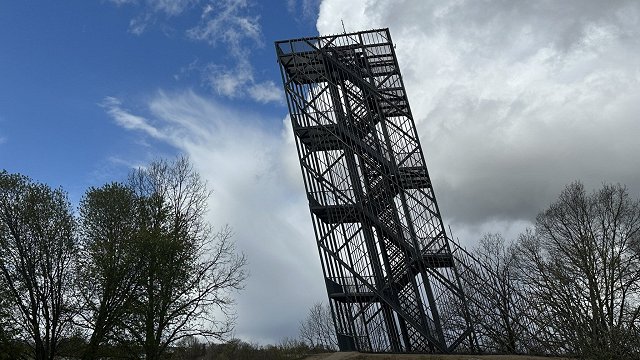People who now are forced to spend more time at home inevitably face the fact that the rubbish bin has to be taken out a little more often now than before the pandemic. It also makes one wonder what the alternatives are and whether the only real choice is to drown in a sea of garbage.
For example, the number of discussion members in the Facebook group Zero Waste Latvija has already reached 14 thousand and it continues to grow every year.
“We are a group of environmental activists who advocate a waste-free lifestyle and its normalization in society. Our goals are to move towards a circular economy and a sustainable lifestyle, without producing waste, without polluting nature, without consuming unnecessary things and without throwing away what still works”, says chairperson of the board of Zero Waste Latvija Anna Doskina.
Zero Waste Latvija members work in various fields. They cooperate with state and local governments, waste managers and producers in the development of draft bills. Furthermore, they work on implementation of various projects of their own.
“The zero-waste movement has become much more popular and understandable to the majority of society. However, we still face beliefs that the supporters of the waste-free lifestyle movement are extremists who condemn every small violation. That is certainly not the case, and we are ordinary people who, in their daily choices, are simply trying to make as many informed choices as possible – to buy less and to throw out less.
At the moment, the most important thing for people is to understand that even a small change in habits is significant. It is important to choose products that are sustainably packaged, without unnecessary plastic or, best of all, without any packaging at all”, comments Doskina.
Large stores are involved, too
The chairperson of the board of Zero Waste Latvija says that Zero Waste Europe conducted a study about Latvia's bulk stores two years ago. It revealed that Latvia per capita is a zero waste store superpower. Zero Waste Latvija has counted 11 specialized stores of this type, where people can buy goods without packaging. Initially, bulk stores were opened in the capital of Latvia, Riga, but now zero-waste stores are also opening in the regions and their largest cities.
Currently, there is also a trend of large chain stores starting to think about the availability of bulk products. At the beginning of this year, for example, Rimi started selling Latvian-made household and hygiene products without packaging. So it is now possible to buy such goods as shampoos, soaps, toothpastes and toothbrushes, deodorants, toilet paper, dishwashing detergents, hygiene products and so on at some Rimi stores.
The first partners in this project were the largest manufacturer of household chemicals and cosmetics in Latvia, Spodrība, and the Latvian manufacturer of cosmetics, STENDERS. Consumers can buy products from these companies in specialized stands using the packaging they bring.
The department store Stockmann also offers its customers similar solutions. These include a free drinking water filling point, fully compostable bags in addition to the usual ones, and a place to buy unpackaged nuts. The store does not sell disposable plastic containers and packaging which cannot be recycled.
Changing consumer habits
“Sustainability is one of the most important values that companies are trying to implement. Therefore, we hope that we will see many innovations in the field of eco-design in the future”, says Doskina.
Currently Zero Waste Latvija is on the way to increasing its capacity. It is working to make it more efficient and is also looking for opportunities to reward its members for their work. So far, Zero Waste Latvija has worked on a voluntary basis. “Bio-waste will be a very important topic for us in the coming years. People will have to learn to sort this kind of waste as well. Brown containers for this waste are already available in several municipalities. We also hope to develop the movement away from goods to services, which would mean reusing, repairing and renting things. It is difficult to change public opinion, of course, but that needs to happen soon so that we can reduce the amount of goods we still discard.
"Unfortunately, modern society operates on the principles of the consumer economy – buy, use, throw away. So, in order for us to become more sustainable and not to do even more damage to the environment, we need to change the principles of consumption and the production conditions of the goods we consume. Our association plans to operate on both sides – to change public opinion and the conditions under which goods are produced”, argues the chairperson of the board of Zero Waste Latvija.
Small businesses are also thinking about reusing goods. For example, plastic bottles are given a second life by being recycling into earrings, brooches, bracelets and other PETit brand accessories. Only used bottles are used to create PETit brand accessories.
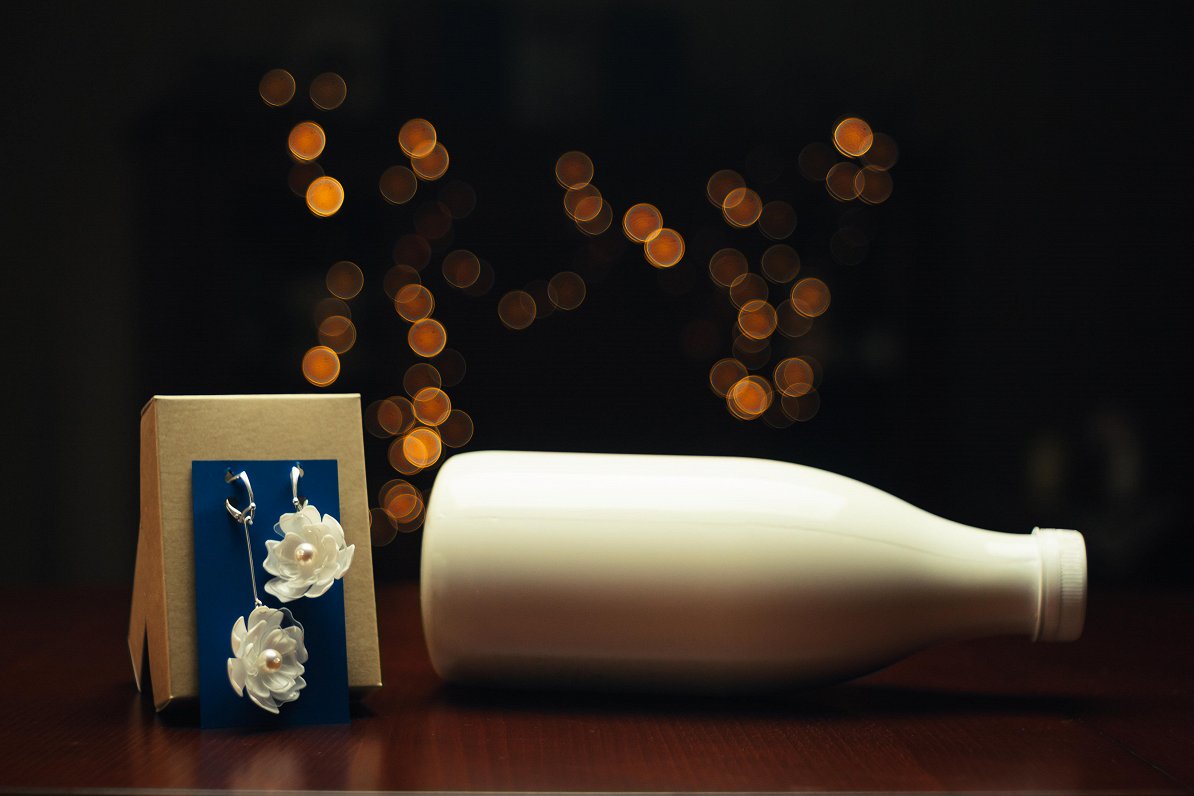
There are not only bulk shops in Latvia. At the beginning of 2019, the zero-waste cafe Cafe M also opened its doors. The cafe was founded by Latvian Ulla Milbreta and Frenchman Yohann Saffray. "The idea came in 2016 when I was living in Singapore and faced a natural disaster due to reckless human waste. We decided to promote the zero-waste lifestyle in order to raise awareness in people's minds. We decided to show it through the operation of the cafe”, says Saffray.
Cafe M operates on the principle of zero waste, which means that no waste is generated as a result of its operation. All bio-waste that occurs after making coffee and food is composted in an industrial composting machine. After 24 hours, it has already processed food residues into compost, which can later be offered to people or used in cafe flowerpots. For example, the cafe owner buys 5l buckets for milk coffees, which are later returned to the producers, and they can use them again. The same goes for drinks in glass bottles – the bottles are returned to the manufacturers.
“In the café, we sell freshly roasted coffee which people can buy by weight and packaged. In order to avoid unnecessary waste and operate on the principle of zero waste, we buy raw materials here in the nearby shops which offer organic products from local farmers. For the same reason, we serve only vegan food in the cafe because, as we know, by reducing the consumption of meat and dairy products, we will reduce the impact on the planet. As we are a social business, we also offer educational talks on zero waste and environmental protection. At the moment, this is not possible due to the situation, but we are very much waiting for everything to return to normal so that we can continue working in this context as well”, says
Saffray.
Asked what the competition in this business is, he says that from the cafe's perspective the competition in this niche is strong. But when looking at the business from the zero-waste point of view, the competition is very small or indirect. “We are the first zero-waste cafe in the Baltic states. For this reason, we attract slightly different customers than other cafes. Ulla and I originally started the business as a couple. Ulla's main goal was to promote the zero-waste lifestyle, and mine was to offer freshly roasted, quality coffee. Over time, however, we decided to separate our paths and now the cafe has also changed its goals a bit. Maintaining the principle of zero waste, we want to turn this place more towards a restaurant in the future”, concludes Saffray.
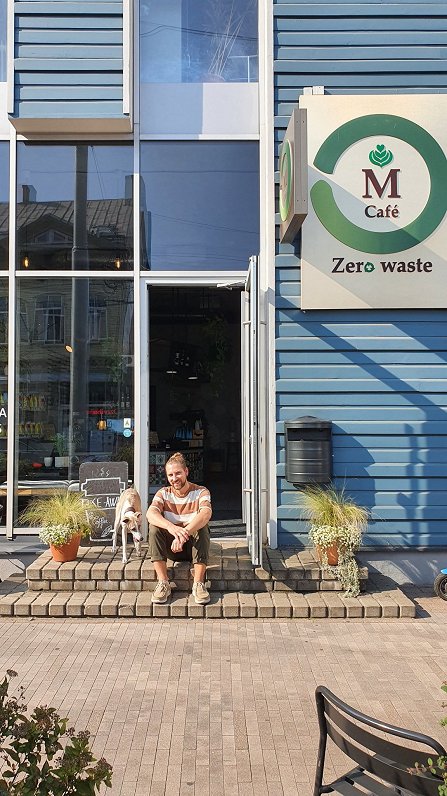
This feature originally appeared in the Baltic Business Quarterly magazine and is reprduced here by kind permission: https://www.ahk-balt.org/lv/publikacijas/zurnals. You can read more about the German-Baltic Chamber of Commerce in Estonia, Latvia and Lithuania at the official website.
